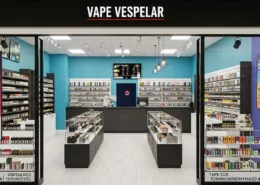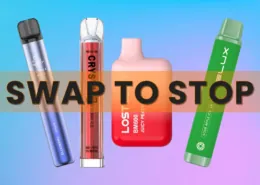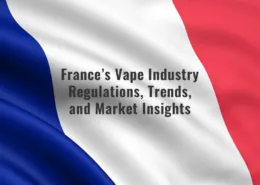How to Open a Vape Shop in Germany (2025 Legal Guide)
Germany, with its robust economy and a significant population of adult smokers, represents one of Europe’s largest and most dynamic markets for vaping products. However, entering this market requires navigating a meticulous and stringent regulatory landscape shaped by both German national law and the overarching EU Tobacco Products Directive (TPD). This guide provides a detailed roadmap, covering the essential legal requirements, business registration processes, product compliance, and strategic insights needed to open a vape shop in Germany.
Is Opening a Vape Shop Legal in Germany?
Yes, opening a vape shop and selling vaping products is legal in Germany. However, it is a heavily regulated activity. All operations must strictly adhere to the German Tobacco Products Act (Tabakerzeugnisgesetz), which implements the EU’s Tobacco Products Directive (TPD), as well as specific laws regarding age restrictions, taxation, advertising, and product safety. Compliance is non-negotiable.
Business Registration and Legal Structure
The first and most critical phase of establishing your vape shop in Germany involves fundamental business registration and choosing the right legal structure for your enterprise. This decision will have lasting implications for your liability, taxation, and administrative requirements.
Choosing Your Business Structure
Prospective vape shop owners in Germany have several legal forms to consider, each with distinct characteristics:
- Einzelunternehmen (Sole Proprietorship): This is the simplest structure to set up, with minimal administrative overhead. However, the owner is personally liable for all business debts without limitation.
- GmbH (Limited Liability Company): A very common and respected business form, the GmbH offers limited liability, protecting your personal assets from business debts. It requires a minimum share capital of €25,000 (of which at least half must be paid in upon formation) and involves more complex registration and ongoing administrative duties, including notarization and entry into the commercial register.
- UG (haftungsbeschränkt) (Entrepreneurial Company with Limited Liability): Often called a “mini-GmbH,” the UG is a popular choice for startups. It offers the same limited liability protection as a GmbH but can be established with a minimum share capital of just €1. It requires that a portion of annual profits be set aside until the €25,000 capital for a full GmbH is reached.
The Formal Registration Process
Once you’ve chosen a business structure, you must complete several mandatory registrations:
- Commercial Register (Handelsregister): If you opt for a GmbH or UG, you must have your company notarized and entered into the German commercial register.
- Trade Office Registration (Gewerbeamt): Every commercial business in Germany, regardless of legal form, must register with the local trade office (Gewerbeamt) to obtain a trade license (Gewerbeschein). This is the foundational step for legal operation and typically costs around €20.
- Tax Office Registration (Finanzamt): After registering with the trade office, the tax office (Finanzamt) will contact you to complete your tax registration. You will be issued a German tax number (Steuernummer), which is essential for all invoicing, paying business taxes, and fulfilling other fiscal obligations. You will also likely need a VAT identification number (Umsatzsteuer-Identifikationsnummer) for transactions.
Expert Tip: The choice of legal form is a significant decision. It is highly advisable to consult with a German legal or business advisor (Rechtsanwalt or Unternehmensberater) to determine the most suitable structure for your specific business goals, risk tolerance, and financial situation.
Ecigator is one of the well-known vape brands spun off from FM Technology Co., Ltd, it’s an ISO-certified disposable vape manufacturer for OEMs, ODMs, and OBM since 2010. The founder team comes from top firms with more than 10 years of experience in the vaping industry and has devoted thousands of hours to providing users with a better and better experience.
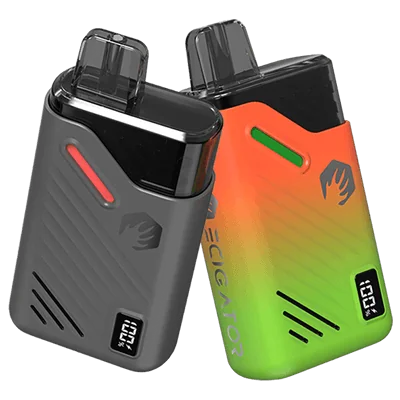
18K Disposable Pod Kit
Disposable Pod Kit – 18ml changeable pod with 650mAh rechargeable battery.
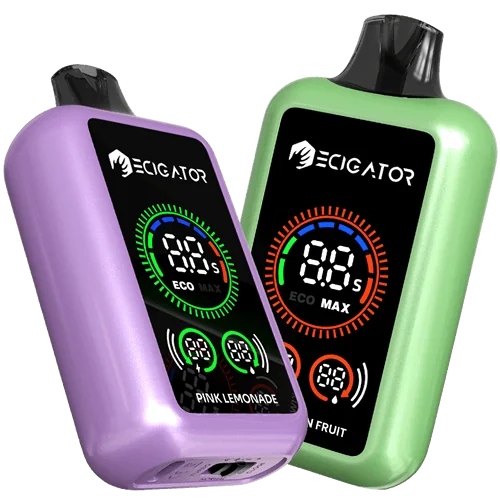
20K with Large Screen
20000 Puffs Disposable Vape with large screen. Normal and Boost working modes.
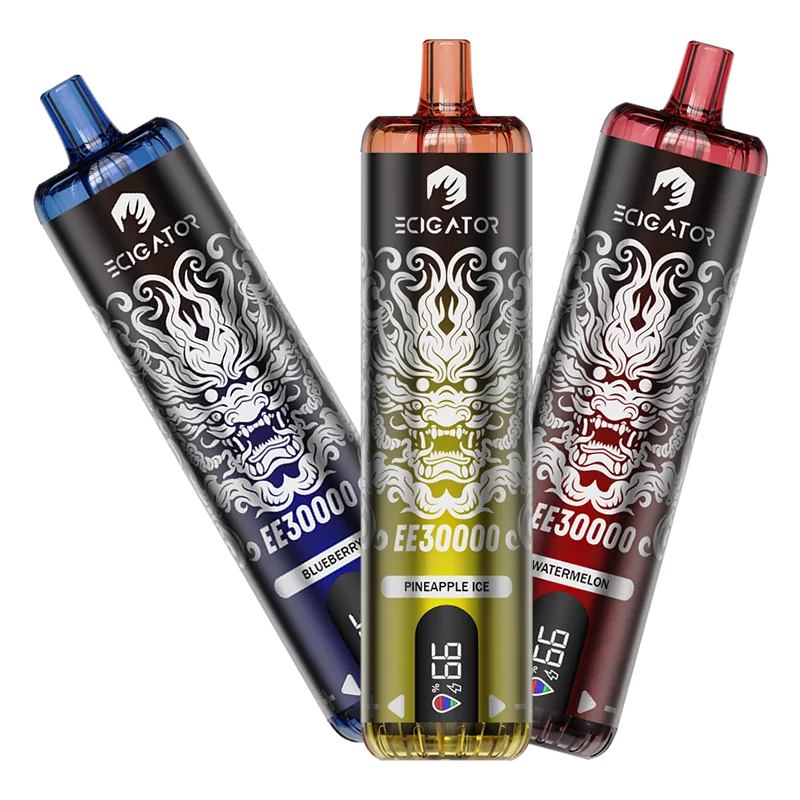
30K DTL Disposable
30K Puffs DTL(Directly to Lung) disposable vape with airflow control and screen.
Product Regulations and Compliance
The sale of all vaping products in Germany is heavily regulated under the EU’s Tobacco Products Directive (TPD), which is implemented into national law via the German Tobacco Products Act. Compliance with these regulations is mandatory for every product on your shelves.
Core TPD Requirements for Vape Products:
- Product Notification via EU-CEG: Before any e-cigarette or e-liquid can be legally sold, it must be notified to the relevant authorities six months in advance. This is done through the EU Common Entry Gate (EU-CEG) system. The notification must include detailed information on the product’s composition, ingredients, nicotine content, and emissions data, often requiring laboratory testing results.
- Nicotine Limits: E-liquids cannot exceed a maximum nicotine concentration of 20 mg/mL.
- Volume Limits: The maximum volume for nicotine-containing e-liquid refill containers is 10ml. For disposable e-cigarettes or single-use cartridges/pods, the maximum tank or cartridge capacity is 2ml. This rule effectively means that disposable vapes with more than approximately 600 puffs are generally prohibited.
- Packaging and Labeling: All products must be sold in child-resistant and tamper-evident packaging. They must also prominently display specific health warnings in German, provide a detailed list of ingredients, and clearly state the nicotine content and delivery per dose.
- Advertising Restrictions: There are comprehensive bans on most forms of advertising for vaping products, including on television, radio, in print media, and most forms of online advertising. Sponsorship of events is also prohibited. Permitted advertising is generally limited to the point of sale and outdoor posters.
Taxation and Customs: The Excise Stamp System
A significant financial and logistical consideration for running a vape shop in Germany is the excise tax system. Since July 2022, Germany imposes an excise tax on all e-liquids, including both nicotine-containing and nicotine-free varieties. This tax is progressive and set to increase:
- 2025: €0.26 per milliliter
- 2026: €0.32 per milliliter (making it one of the highest in the EU)
In addition to this excise tax, a standard 19% Value Added Tax (VAT) is also applied.
The Mandatory Tax Stamp (Steuerbanderole)
As a shop owner, your primary responsibility is to ensure that every e-liquid product you sell has the required German tax stamp (Steuerbanderole) affixed to its retail packaging. These stamps are issued by the German Customs Authority (Zoll) and serve as proof that the excise tax has been paid. Products without a valid German tax stamp are considered illicit and cannot be legally sold or distributed. When sourcing inventory, it is crucial to work with wholesalers and manufacturers who are registered with German customs and can provide fully compliant, tax-stamped products.

Sales Regulations and Age Restrictions
Protecting minors is a core principle of German law, and this is strictly enforced for vaping products.
Minimum Age for Purchase: Strictly 18+
Under the German Protection of Minors Act (Jugendschutzgesetz), the legal age to purchase and use e-cigarettes in Germany is 18 years or older. There are no exceptions. Retailers must implement robust age verification systems for all sales, both in physical stores and online. This includes mandatory ID checks for any customer who appears to be underage (with a common retail practice of checking anyone appearing under 25). Online shops must use reliable age verification systems at both the point of purchase and upon delivery.

ECIGATOR
Ecigator is one of the well-known vape brands spun off from FM Technology Co., Ltd, it’s an ISO-certified disposable vape manufacturer for OEMs, ODMs, and OBM since 2010. The founder team comes from top firms with more than 10 years of experience in the vaping industry and has devoted thousands of hours to providing users with a better and better experience.
Financial Planning & Investment Analysis
A solid financial plan is the difference between a thriving business and a failed one. This section provides templates and models to guide your financial decisions.
Detailed Cost Breakdown Table (Example for a Mid-Sized City)
| Cost Category | Estimated Initial Cost (One-Time) | Estimated Monthly Cost (Recurring) |
|---|---|---|
| Company Formation & Legal Fees | €1,500 – €4,500 | – |
| Shop Rent (Deposit – 3 months) | €4,500 – €9,000 | €1,500 – €3,000 |
| Shop Fit-Out & Furnishings | €5,000 – €25,000 | – |
| Initial Inventory Purchase | €10,000 – €50,000 | (See Inventory Replenishment) |
| POS System & IT Setup | €1,000 – €3,000 | €50 – €150 (Software Fees) |
| Business Insurance (Annual Premium) | (€2,000 – €8,000 paid annually) | €167 – €667 |
| Staff Salaries (1-2 employees) | – | €4,000 – €8,000 |
| Utilities & Marketing | – | €500 – €1,500 |
| Total Estimated Range | €22,000 – €82,500 | €6,217 – €13,317 |
Note: These are estimates. Conduct local research for precise figures.
Revenue Forecast Model and Break-Even Analysis
Projecting your revenue is key. You can create conservative, realistic, and optimistic scenarios. For example, a realistic scenario might be: 30 customers per day with an average sale of €20, which equates to €18,000 in monthly revenue. Your break-even point is when your revenue covers all your costs. The formula is: Total Fixed Monthly Costs / Gross Margin Percentage. If your fixed costs are €5,000 and your average gross margin is 40%, you need to make €12,500 in monthly sales to break even. Understanding this number is critical for your survival.
Market Positioning & Competition Strategy
In a market with 1,500 existing shops, differentiation is key to survival and growth.
- Competitor Analysis: Map out local competitors. What brands do they carry? What are their prices? What is their customer service like? Identify their weaknesses and your potential strengths.
- Target Customer Profile: Focus on the primary demographic of 18-34 year olds. Are you targeting beginners who need simple starter kits, or experienced vapers looking for high-end mods and complex e-liquids? Your store’s design, product selection, and staff expertise should reflect your target audience.
- Product Portfolio Strategy: A balanced inventory is crucial. A good starting point could be: 40% popular, high-turnover e-liquids; 30% starter and pod systems; 20% advanced hardware; and 10% accessories. Prioritize quality and compliant brands.
- Location Selection Criteria: Look for high foot traffic, good visibility, and accessibility via public transport. Check local zoning laws to ensure a vape shop is permitted. Avoid being right next door to a direct competitor unless you have a strong unique selling proposition (USP).
- Differentiation Strategy: What makes you unique? It could be exceptional, expert customer service; a focus on “Made in Germany” or premium European e-liquids; a loyalty program; or creating a community hub with workshops.
Supply Chain & Operations Optimization
Efficient operations are the backbone of a successful retail business.
- Supplier Evaluation: Create a checklist for vetting suppliers. Key questions: Are they registered with German customs? Can they provide proof of TPD/EU-CEG notification for all products? Do all products come with the correct German tax stamp? What are their delivery times and minimum order quantities?
- Purchasing Strategy: Initially, focus on a curated selection of popular, proven products to avoid tying up capital in slow-moving stock. As you gather sales data, you can expand your range.
- Inventory Management System: Use a modern Point-of-Sale (POS) system that tracks inventory in real-time. This helps prevent stockouts of popular items and overstocking of poor sellers, optimizing your cash flow.
- Standard Operating Procedures (SOPs): Create a clear manual for your staff covering key processes: opening/closing procedures, cash handling, customer service standards, and, most importantly, the mandatory age verification process.
- Staff Recruitment and Training: Hire staff who are passionate and knowledgeable about vaping. Provide comprehensive training on your product range, German vape laws (especially age checks), and your store’s customer service philosophy.
Digital Transformation & Growth Strategy
With online sales being a major part of the German market, a digital strategy is essential, even for a physical store.
- Data Analysis: Use analytics from your POS system and website to understand what products are selling, who your customers are, and how they shop. Use this data to optimize your inventory, pricing, and marketing efforts.
- E-commerce Platform: Build a professional, user-friendly online shop. This platform must have a robust, legally compliant two-step age verification system to prevent sales to minors.
- Compliant Digital Marketing: Traditional online ads (Google, social media) for vapes are banned. Focus your strategy on:
- Search Engine Optimization (SEO): Optimize your website to rank for terms like “Vape Shop [Your City]” or “E-Zigarette kaufen.”
- Content Marketing: Create a blog with informative articles about product care, new (legal) technologies, and industry news. This builds authority and attracts customers.
- Community Building: Engage with customers on age-gated forums or specialized social media groups, adhering strictly to promotion rules.
- Customer Relationship Management (CRM): Use a CRM system to manage customer data (with their consent, per GDPR) and run a loyalty program or email newsletter with product updates and special offers for your existing adult customers.
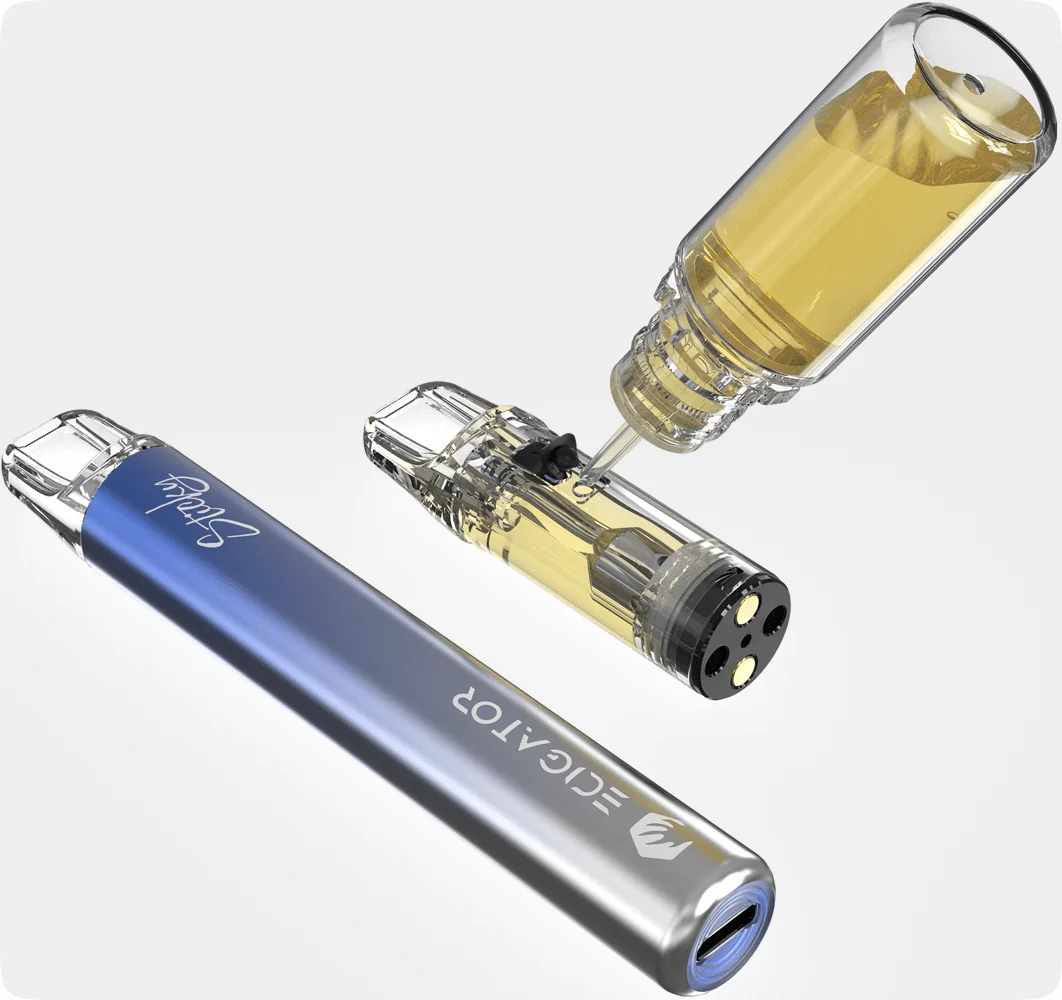
Ecigator Open Pod Kit for Starters
The Ecigator Sticky Refillable Open Pod Kit is a new type of vape device designed for beginners. It features a refillable pod and a rechargeable battery.
This means you don’t need to throw away a disposable prefilled pod — simply refill it instead. Each pod supports approximately 7–8 refills, and you can switch e-liquids to enjoy different flavors.
Future Trends and Challenges
The German and EU regulatory landscapes for vaping are not static. Business owners must stay informed about potential future changes:
- Disposable Vape Ban: There is a strong legislative push for a nationwide ban on disposable e-cigarettes in Germany, potentially starting as early as 2025 or 2026. This would require a significant shift in inventory towards refillable and open-system devices.
- Flavor Restrictions: While not yet implemented nationwide, there are ongoing discussions at both the German and EU levels about potential future restrictions on certain e-liquid flavors deemed appealing to youth.
- Increased Taxation: The scheduled increase in the e-liquid excise tax in 2026 will further raise prices and may impact consumer purchasing habits.
Conclusion
Opening a vape shop in Germany in 2025 is a venture with significant market potential, but it is intrinsically linked to navigating a highly regulated environment. Success is not just about sales; it’s about meticulous compliance. From choosing the correct legal business structure and navigating the dual layers of EU and German product regulations to managing the complex excise tax stamp system and enforcing strict age verification, every step requires careful attention to detail.
By developing a robust business plan, securing compliant product lines from reputable suppliers, investing in knowledgeable staff, and staying vigilant about the evolving regulatory landscape, entrepreneurs can build a thriving and legally sound vape business. While the challenges are real, for those committed to responsible retailing, the opportunity to serve Germany’s large and discerning community of adult vapers is substantial.
- Malaysia Negeri Sembilan Backs Vape Ban, Awaits Clear Laws - August 5, 2025
- Is It Illegal to Vape or Smoke While Driving in Massachusetts? - August 5, 2025
- Austria Plans to Ban Disposable E-Cigarettes - August 5, 2025


